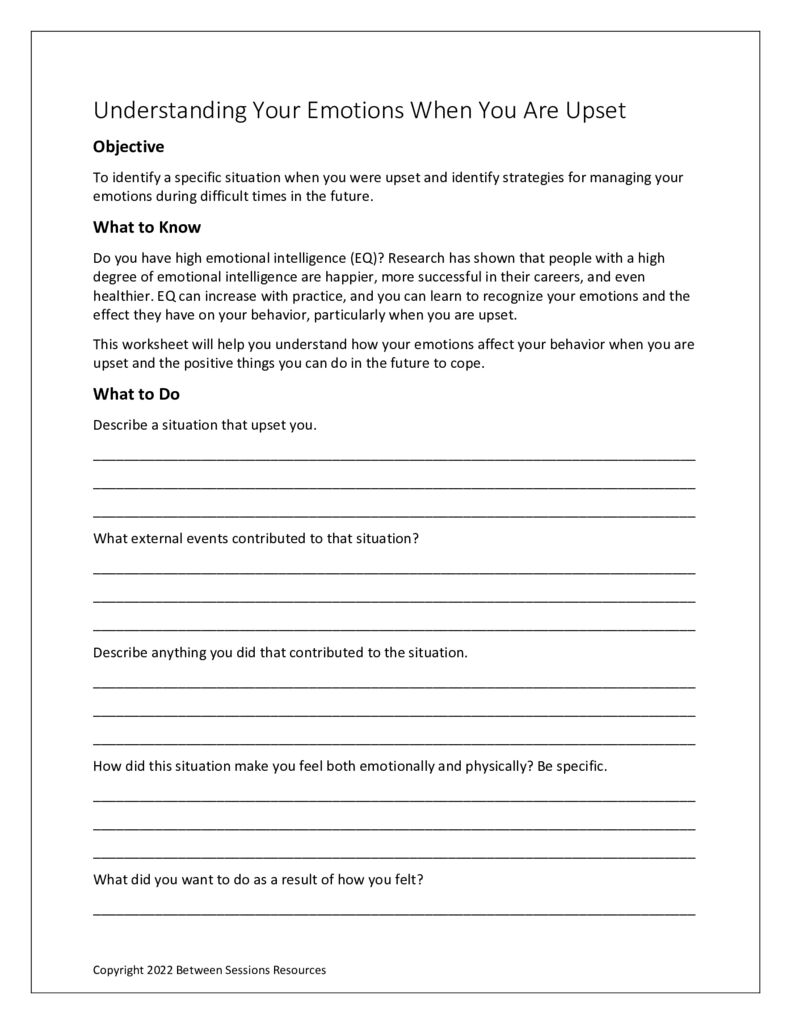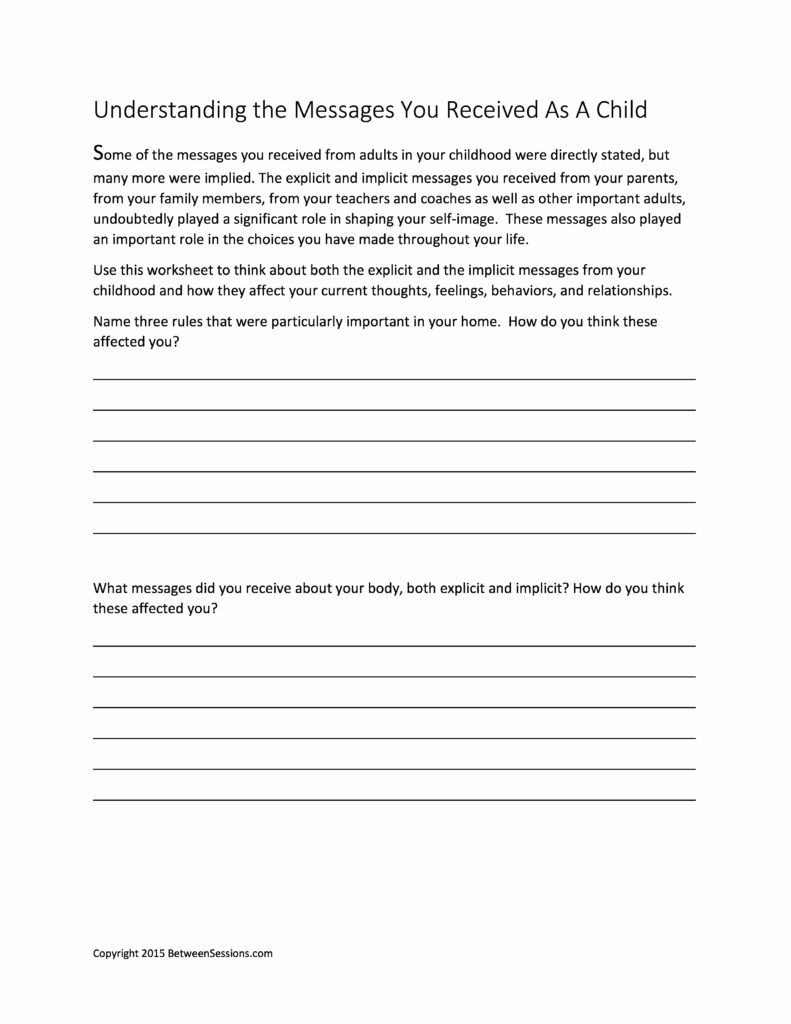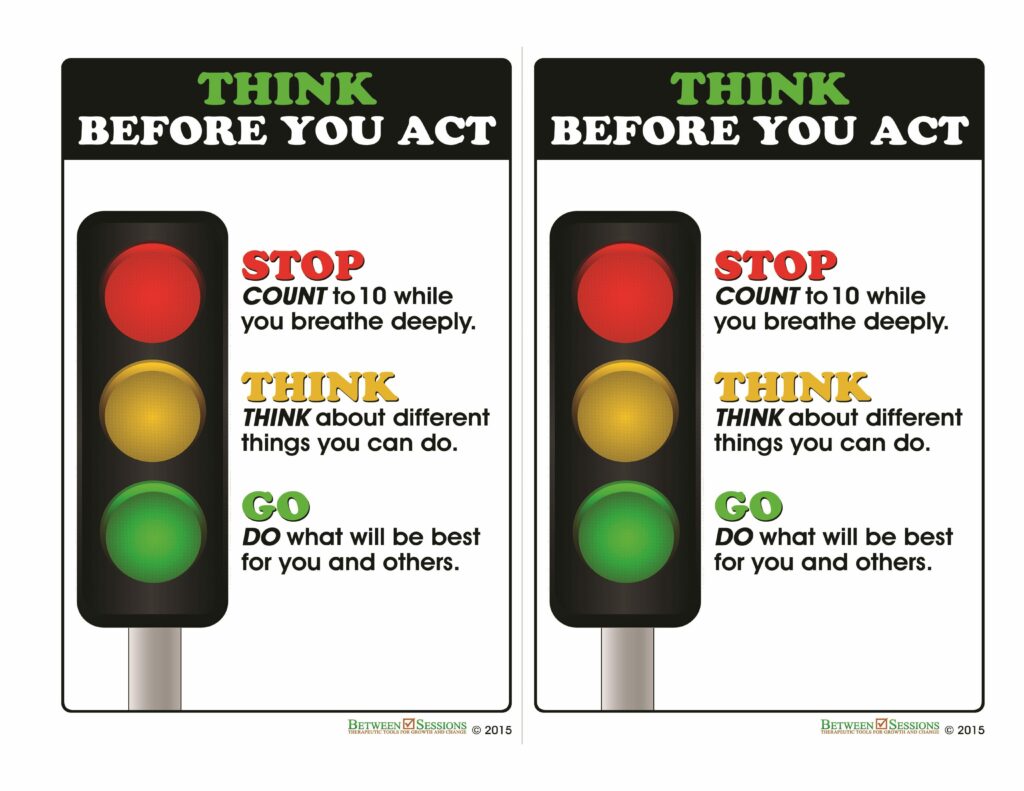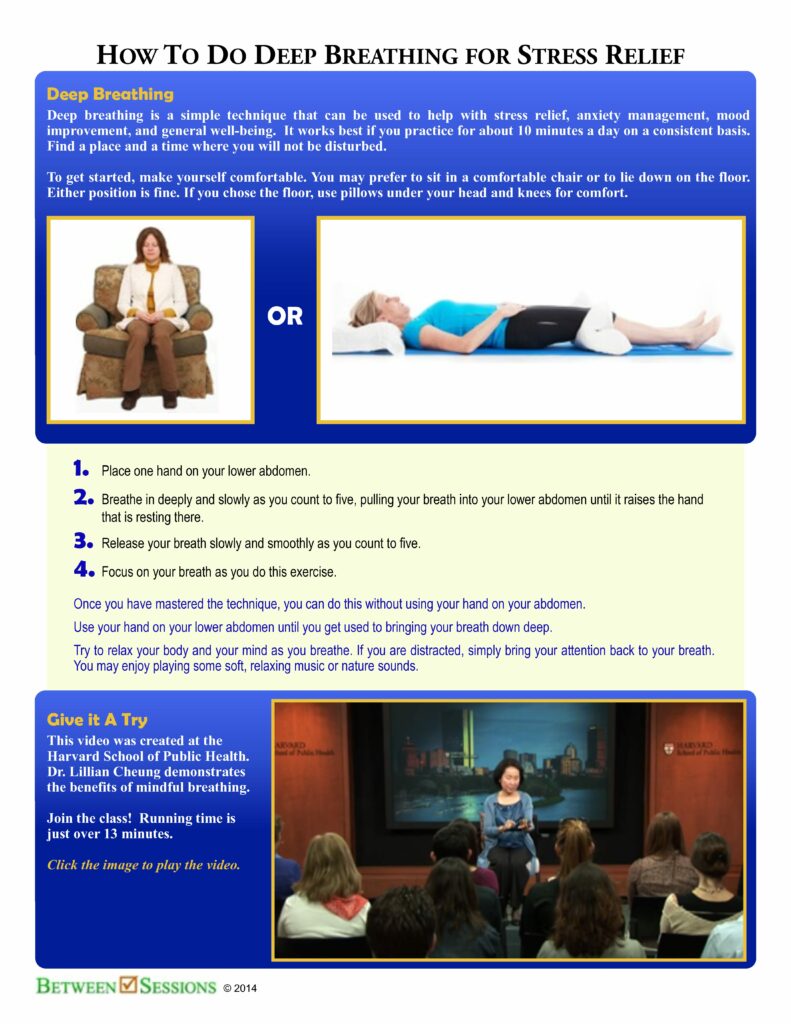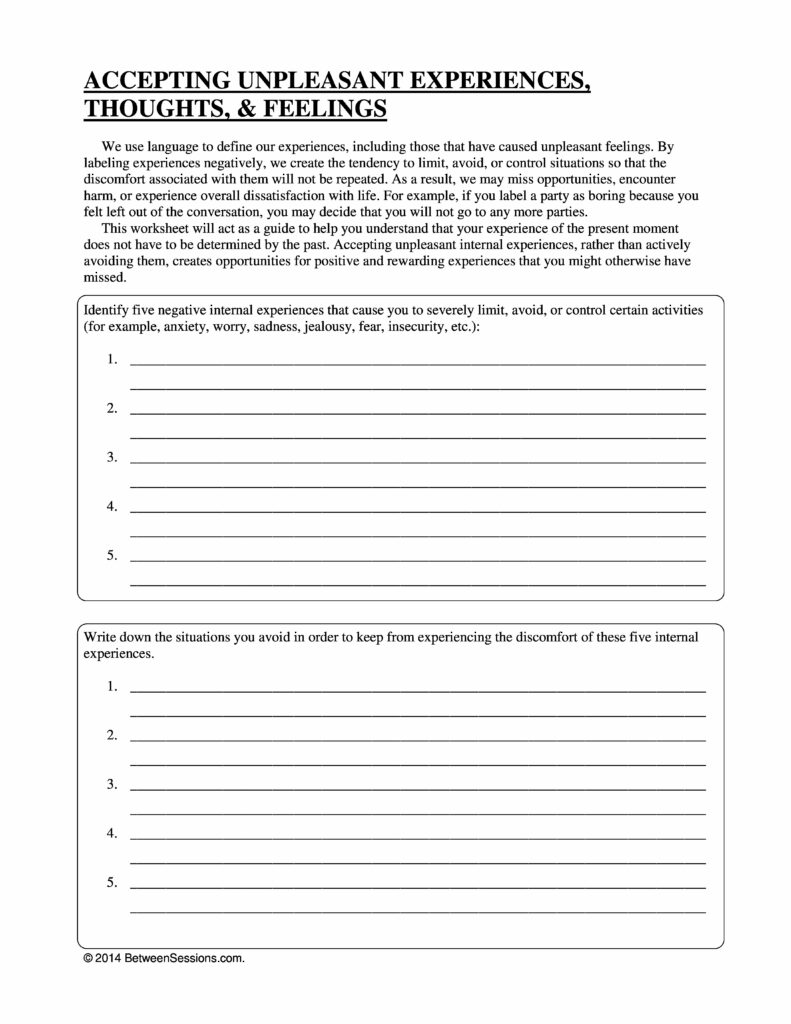This worksheet is designed to help people identify a specific situation when they were upset and identify strategies for managing their emotions during difficult times in the future. (EQ, emotional intelligence, coping techniques, 1022)
Behavior contracts are not just for kids! This worksheet is designed to help people commit to changing specific behaviors that interfere with their lives by breaking down goals into sub-steps, identifying rewards for achieving each step, and sharing the intention to change with supportive individuals. (contracts, behavior change, goal-setting, 0515)
This worksheet is designed to help people examine the explicit and implicit messages they received as children and how these messages affect their self-image and self-efficacy. (0415)
This worksheet is designed to help people think about their emotional strengths and how they can bring these strengths to their current problems. It contains a list of strengths for clients to rate, as well as questions about how significant others perceive the person’s emotional strengths. (0415, ACT, DBT)
This form can be used to give people a visual reminder to stop and think before they act. This is particularly helpful for kids and teens, but is a useful technique for adults too. (0315)
Some people are prone to becoming overwhelmed by their emotions. Usually caused by specific triggers, their intolerable level of emotions may then lead to symptoms, such as panic, alcohol or substance abuse, self-injury, or depression. This worksheet is designed to help people develop a set of positive coping techniques that can help them tolerate difficult emotions and refrain from self-defeating behaviors. (addiction, self-injury, impulsivity, prevention, 0315)
Rooted in the work of Dialectical Behavior Therapy (DBT), this worksheet is designed to help clients let go of their style of negatively judging others, and to help them understand the negative effects of these thoughts and their associated behavior. (DBT, judgment, 0215)
This worksheet will assist clients in developing an awareness of when they are at risk for a relapse and how to appropriately respond. Form Type: PDF (121614)
This worksheet describes the four basic steps of relaxing through deep breathing. The worksheet links to a 13-minute exercise for clients to practice deep breathing, led by Dr. Lillian Cheung, of the Harvard School of Public Health. (mindfulness, breathing exercise, audios, stress management, 1114)
This worksheet, derived from Acceptance & Commitment Therapy (ACT), is designed to help people accept unpleasant internal experiences, and not use them as an excuse to avoid life-affirming situations.

